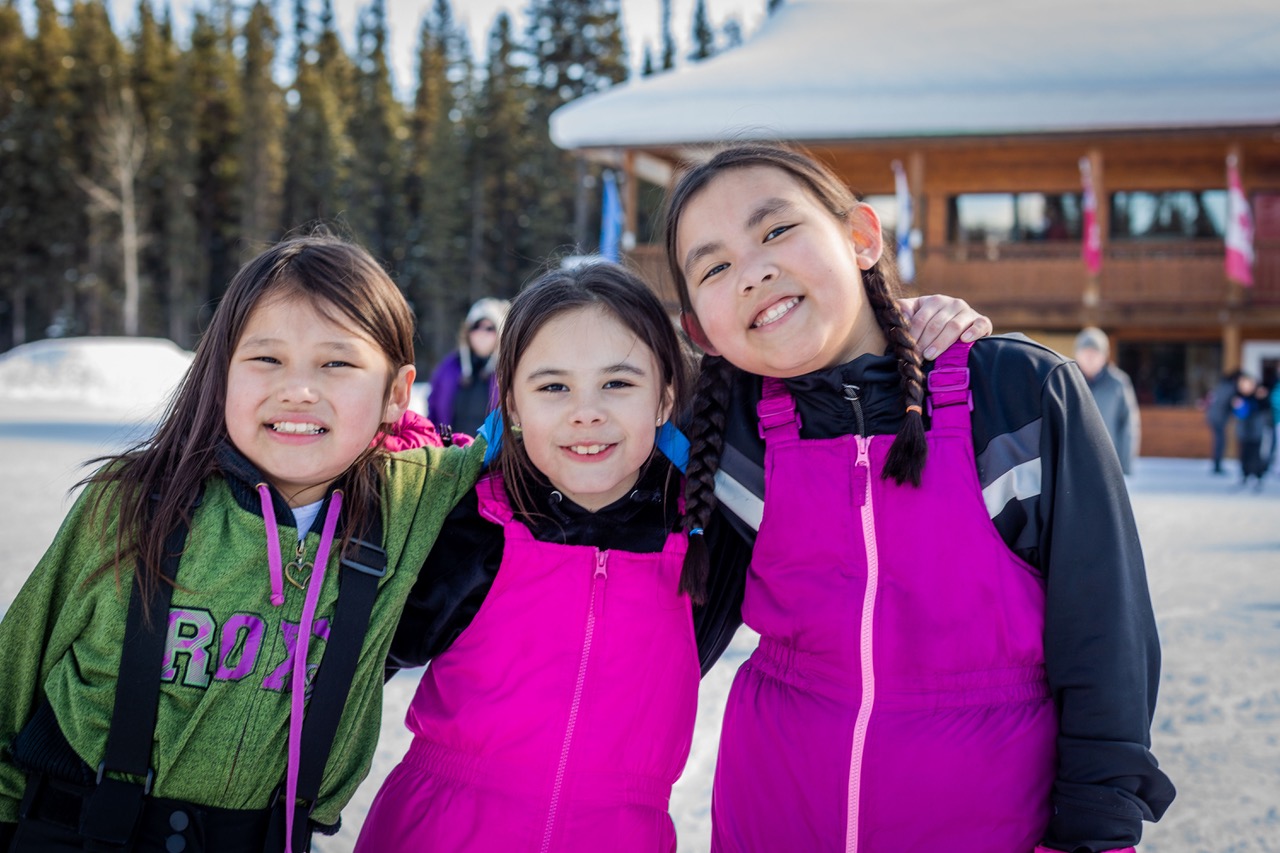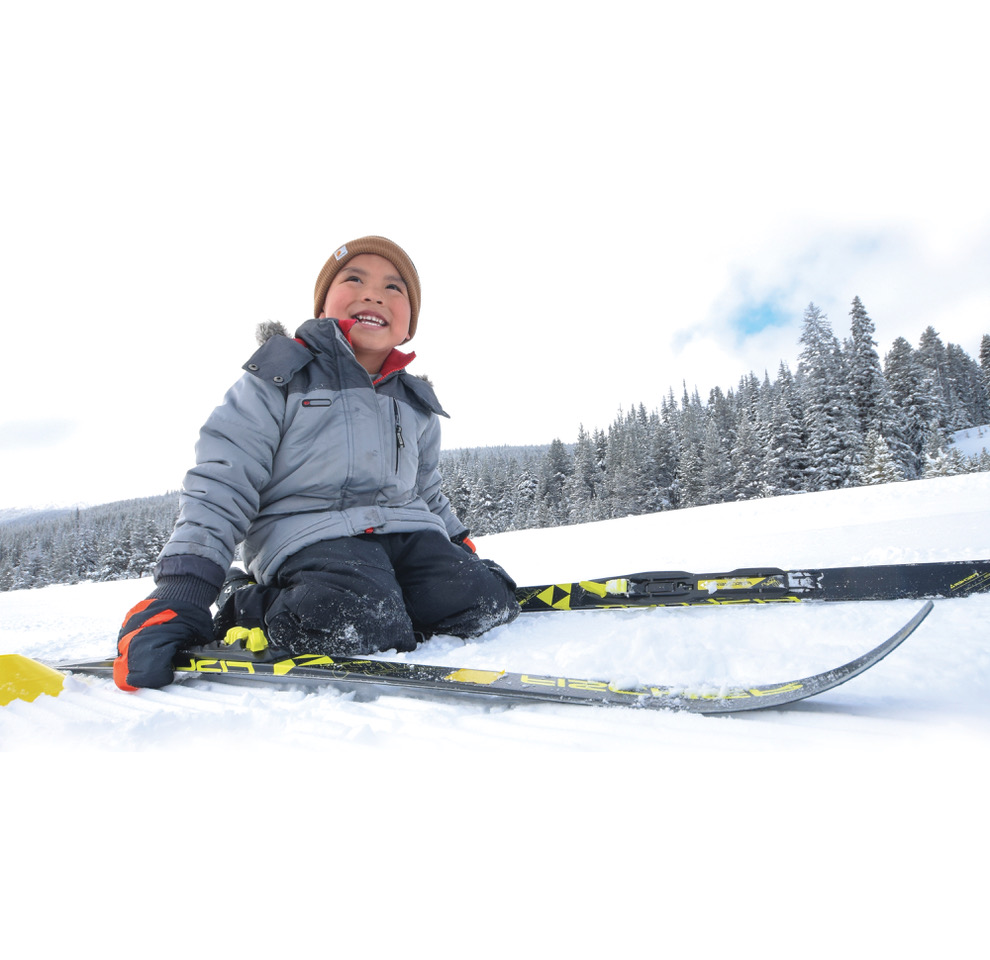 Health and Wellness for Indigenous Youth
Health and Wellness for Indigenous Youth
Our future, support the children
Spirit North was founded in 2009 to reduce barriers to health and wellness for Indigenous children and youth and reconnect them to the land. Our goal is to improve health and wellness, build essential life skills and increase the positive development of Indigenous children and their communities. Sport provides physical, mental, and social connections that can inspire meaningful, lifelong change. Major barriers to participation in sport and physical activity for Indigenous children and youth are grounded in geographic isolation and socio-economic limitation; leading to low participation and activity levels for Indigenous children and youth. Spirit North is committed to improving the health and well-being of Indigenous youth through the transformative power of sport and play. We believe that every child deserves a chance to dream - and the confidence to pursue that dream. Our mission is to break down the racial and socio-economic barriers preventing Indigenous youth and their communities from achieving health and wellness. Using sport and play, we spark inspiration for health and build skills that can enhance every part of their lives.
Necessity
Sport for development programs for Indigenous children and youth in Canada.
Activity
Delivery of organized sport and play activities by a qualified Community Outreach Leader.
Countable effort
Number of children and youth reached with sport for development programs designed to improve academic, physical, and mental health outcomes.
Result
Children and youth build confidence and life skills that enhance every part of their lives, they are empowered with the inherent belief that they can achieve their dreams.
Systemic effect
Children and youth become vibrant, engaged members of their communities; living heathy, and fulfilled lives. This benefit extends to past and future generations.
Background
Indigenous people in Canada face profound disparity as measured by health, education, and employment indicators. Factors leading to diminished physical and mental health are anchored in colonization and the after-effects of a residential school system designed to eradicate Indigenous culture. Inarguably, Indigenous people live with disproportionate levels of poverty, have lower education outcomes, and suffer higher rates of substance and alcohol abuse. As Chief Justice Murray Sinclair states: “The legacy of residential schools and government actions towards Indigenous people over the years since Confederation is staggering. Every social condition measurable in Canadian society places Aboriginal people at the most disadvantaged position of all people in the country” (2015). Amongst the fastest growing demographics in Canada, Indigenous youth are faced with enormous physical and mental health challenges. Mental health issues such as depression and suicide are an urgent concern, and the statistics are daunting. Health Canada states: “Youth suicide is an urgent issue for First Nations and Inuit youth in Canada. While there is much variation among communities, overall rates are five to seven times higher for First Nations youth than for non-Aboriginal youth” (2018). While sport and physical activity are universally recognized as effective tools for advancing health, wellness, and education outcomes; barriers to participation for Indigenous populations grounded in geographic isolation and socio-economic limitation persist. Today, a disproportionate number of Indigenous children and youth do not participate in sport, and current health data collected on school-aged Indigenous children and youth suggests that physical inactivity is a serious concern. One study of self-reported moderate-to-vigorous physical activity (“MVPA”), from 204 on-reserve 10-16-year olds found that only 14% of boys and 4% of girls achieved public health guidelines for MVPA (Janssen, 2014).
The good deed
Your good deed helps Spirit North deliver year-round sport for development programs to over 6,000 Indigenous children and youth in more than 60 communities across Canada. Contributing to Spirit North is an investment in the power of sport and play to create lasting meaningful change by empowering Indigenous children and youth to overcome barriers, discover their potential, find their voice, and fulfill their promise. Through the transformative power of sport and play, our programs advance academic outcomes, improve physical and mental health, and build community capacity and resilience. Our programs contribute to achieving many of the Truth and Reconciliation Commission’s 94 Calls to Action and all 17 of the United Nations’ Sustainable Development Goals. By connecting participants to the land with activity and skill development, our programs inspire the positive development of youth, and leave lasting meaningful impacts for families and communities. An investment in Spirit North is an investment in health, happiness, skills, and knowledge - ensuring a brighter future for Indigenous children and youth across Canada. It is a meaningful step on the path towards reconciliation and healing; an opportunity to foster diversity, equity, and inclusion in outdoor sport; and an opportunity to contribute to peace and prosperity for people and the planet, now and into the future.

AboutCanada
Ottawa
37,600,000
US$ 52,144
Placed 9th out of 189
About the organization and further information
Spirit North
Website
Further information and source
- https://www.un.org/development/desa/indigenouspeoples/
- http://www.trc.ca/assets/pdf/Honouring_the_Truth_Reconciling_for_the_Future_July_23_2015.pdf
- https://www.un.org/sport/sites/www.un.org.sport/files/ckfiles/files/Sport_for_SDGs_finalversion9.pdf
- https://www.ictinc.ca/blog/8-key-issues-for-indigenous-peoples-in-canada
- https://www.coursera.org/learn/indigenous-canada




